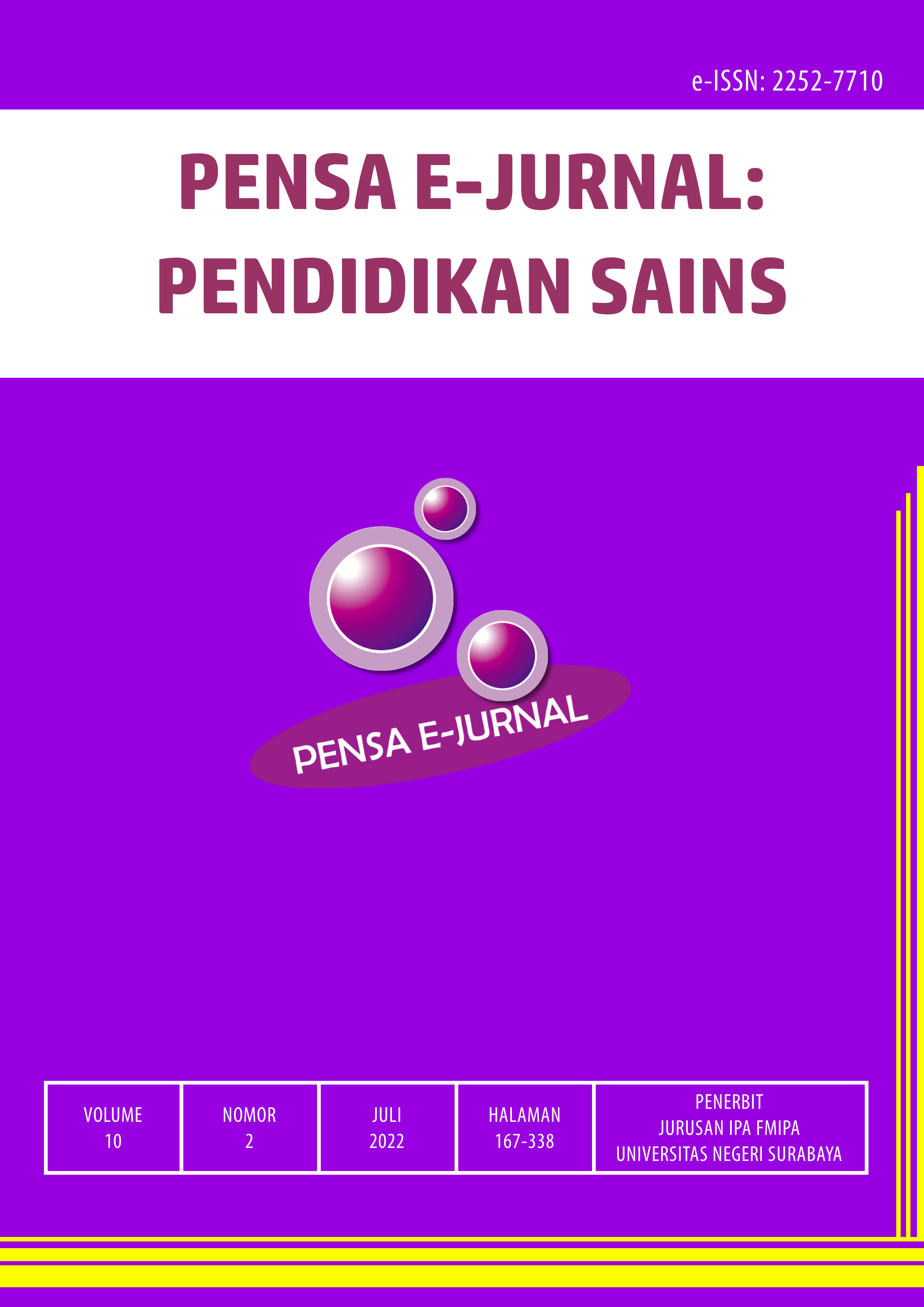IMPLEMENTASI LABORATORIUM VIRTUAL UNTUK MENINGKATKAN MOTIVASI BELAJAR DAN KETERAMPILAN PROSES SAINS SISWA SMP DALAM PEMBELAJARAN IPA
DOI:
https://doi.org/10.26740/pensa.v10i2.45012Keywords:
Virtual laboratory, learning motivation, science process skillsAbstract
This research aimed to describe the improvement of learning motivation and science process skills of junior high school students in science learning by implementing a virtual laboratory. The type of research used is the pre-experiment with one group pretest-posttest design with research subjects, namely 33 students of class VII-D of SMPN 35 Surabaya in the 202/2022 Academic Year. The sampling technique in this research is purposive sampling. Data collection techniques are by test methods and the spread of questionnaires. The data analysis technique used in this study is quantitative statistics by using the N-Gain test. The results showed that student learning motivation got percentage from 65% (medium category) to 80% (good category) with an average N-Gain of 0.42 including moderate categories. Students science process skills got score 70 (enough category) to 83 (good category) with an average N-Gain of 0.47 including moderate categories. The conclusion of this research is that the implementation of learning media in the form of virtual laboratory can increase students learning motivation and science process skills in science learning and in line with the Ministry of Education's policy on the implementation of education policies in the emergency period of the spread of Covid-19.
Downloads
Downloads
Published
How to Cite
Issue
Section
 Abstract views: 1368
,
Abstract views: 1368
, PDF Downloads: 863
PDF Downloads: 863

















